With a label on the reverse inscribed: MAISON TOUSSAINT / PARIS, 13 Rue du Dragon, 13 / P. FERRET, Nephew / Successor / Official Packer of the Direction des Beaux-Arts.
Exhibition: Shown under number 314 at the Toulouse Salon of 1902, organized by the Union Artistique de Toulouse.
Émile Noirot was first trained by his father Louis Noirot, then studied under François-Louis Français, Charles Daubigny, and Alexandre Cabanel. He attended classes at the Académie Julian in Paris and frequented the studio of the sculptor Emmanuel Frémiet. From an early stage, he developed a particular sensitivity to light and landscape, especially those of the Loire region and the South of France.
Although he remained attached to his native region and to depictions of the banks of the Loire, Émile Noirot travelled extensively and was captivated by Mediterranean ports, their bright atmospheres and picturesque activity. His paintings convey a fascination for large sailing ships, maritime life, and scenes of the quays, which he rendered with pictorial energy and a vigorous touch.
The present painting perfectly illustrates this orientation. The composition highlights a row of moored sailing vessels, their dark hulls contrasting with the light sails and taut rigging. In the foreground, the large ship occupies the full height of the canvas, creating a powerful perspective effect and an almost theatrical monumentality. On the left, the silhouettes of female figures and sailors enliven the quay, bringing a human presence to this maritime setting.
Noirot’s brushwork is broad, lively, at times almost hatched. The artist used generous paint, working in impasto to render the texture of clouds or the brilliance of reflections on the water. The sky, a luminous blue scattered with pink and white clouds, occupies much of the composition and contributes to the vibrant, sunlit atmosphere. The palette, dominated by light blues, ochres, and warm browns, gives the whole an effect of chromatic harmony that is both subtle and powerful.
This work reflects Noirot’s interest in the effects of light and movement: the bustle of the port, the changing tones of the sea, the juxtaposition of planes. It shows the impressionist vein running through his landscapes, without abandoning the solid construction inherited from his academic training.
He exhibited at the Paris Salon, then at the Salon des Artistes Français from 1889. He also exhibited in Saint Petersburg, London, Brussels, Venice, Chicago, Antwerp, Mulhouse, and other venues.
He received a distinction at the 1889 Exposition Universelle, medals in 1891 and 1893, and a bronze medal at the 1900 Exposition Universelle.
He was appointed painter to the Ministry of Naval Affairs and made Chevalier of the Légion d’Honneur in 1902.
Émile Noirot’s works are housed in several museum collections, including the Musée d’Orsay in Paris, the Musée des Beaux-Arts in Lyon, the Musée Joseph-Déchelette in Roanne, the Musée d’Art et d’Industrie in Saint-Étienne, as well as the museums of Le Puy-en-Velay, Saint-Jean-de-Maurienne, and Toulon.


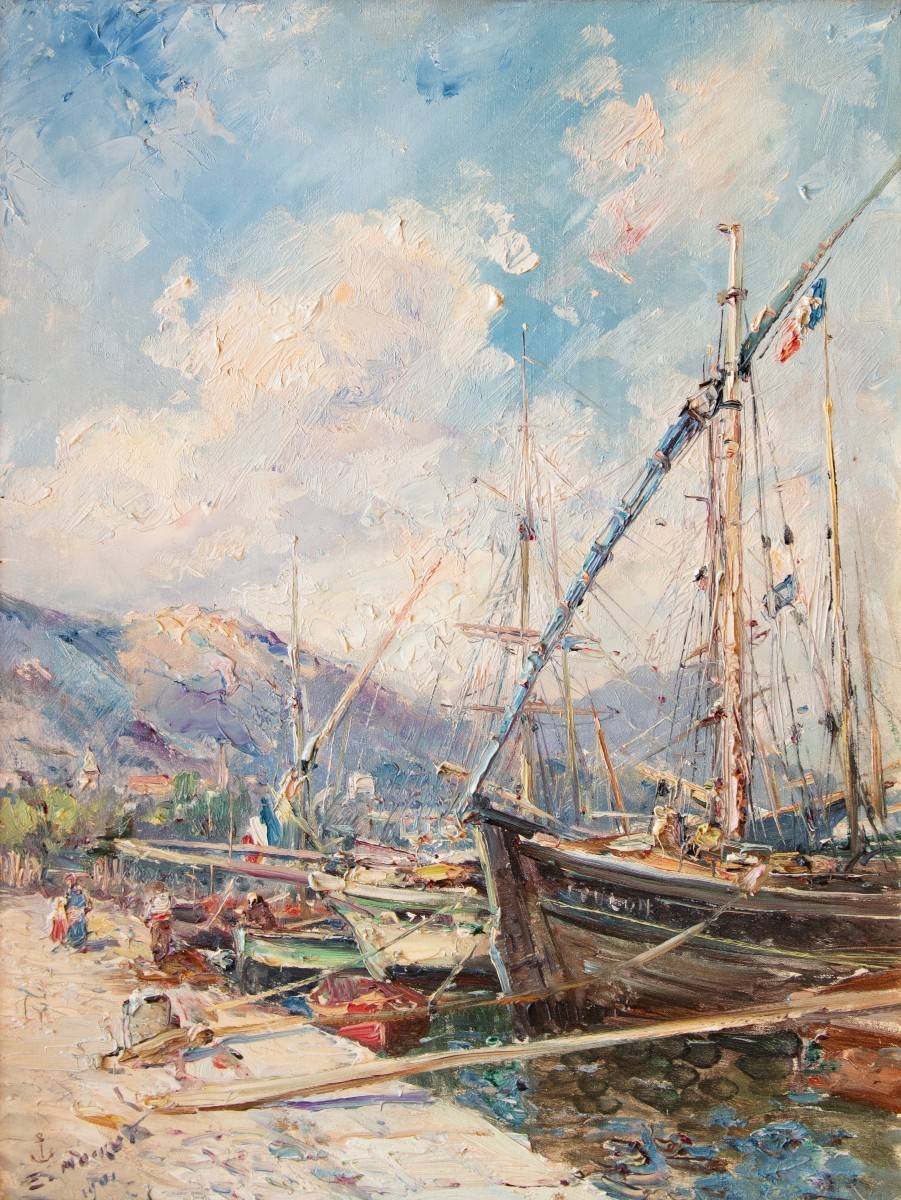
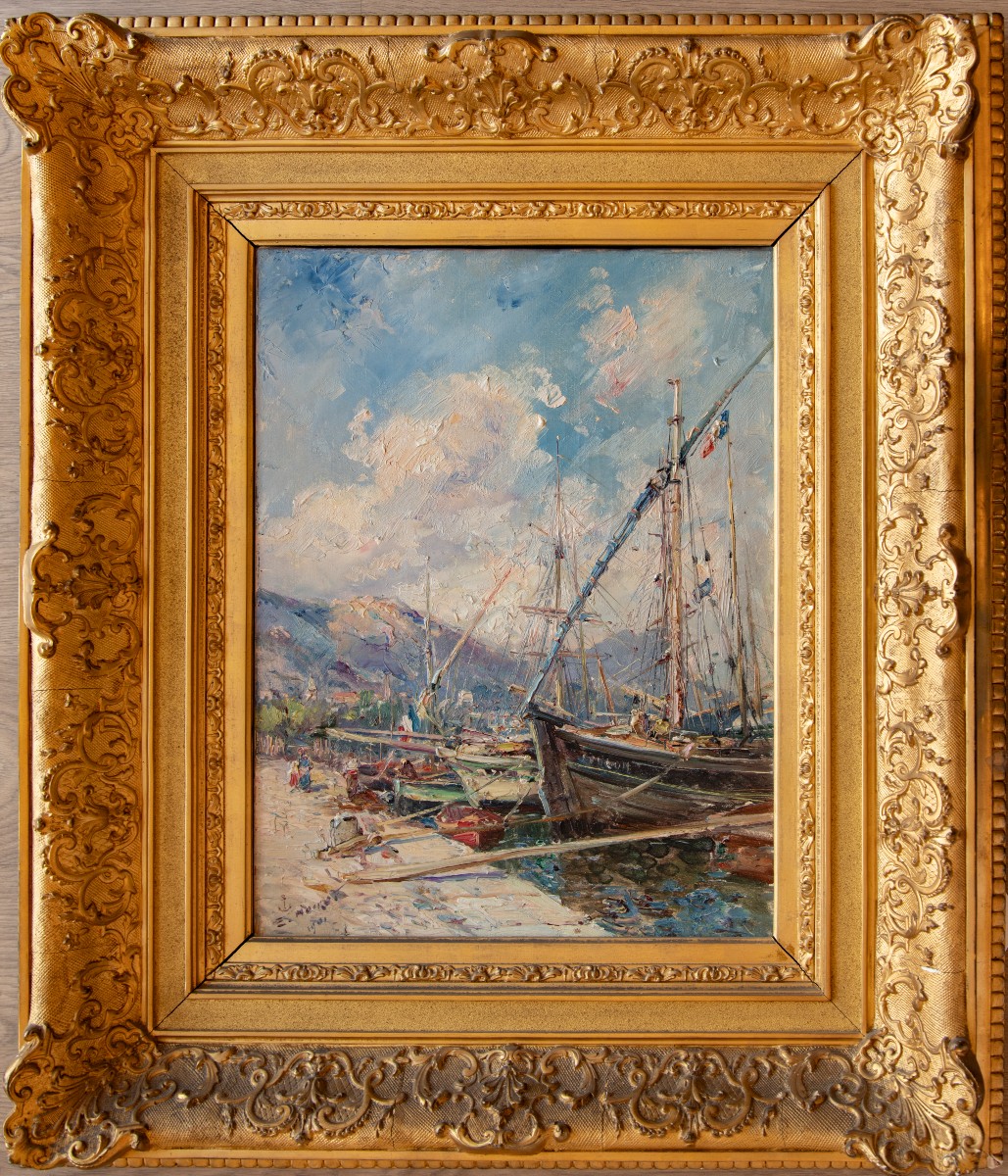

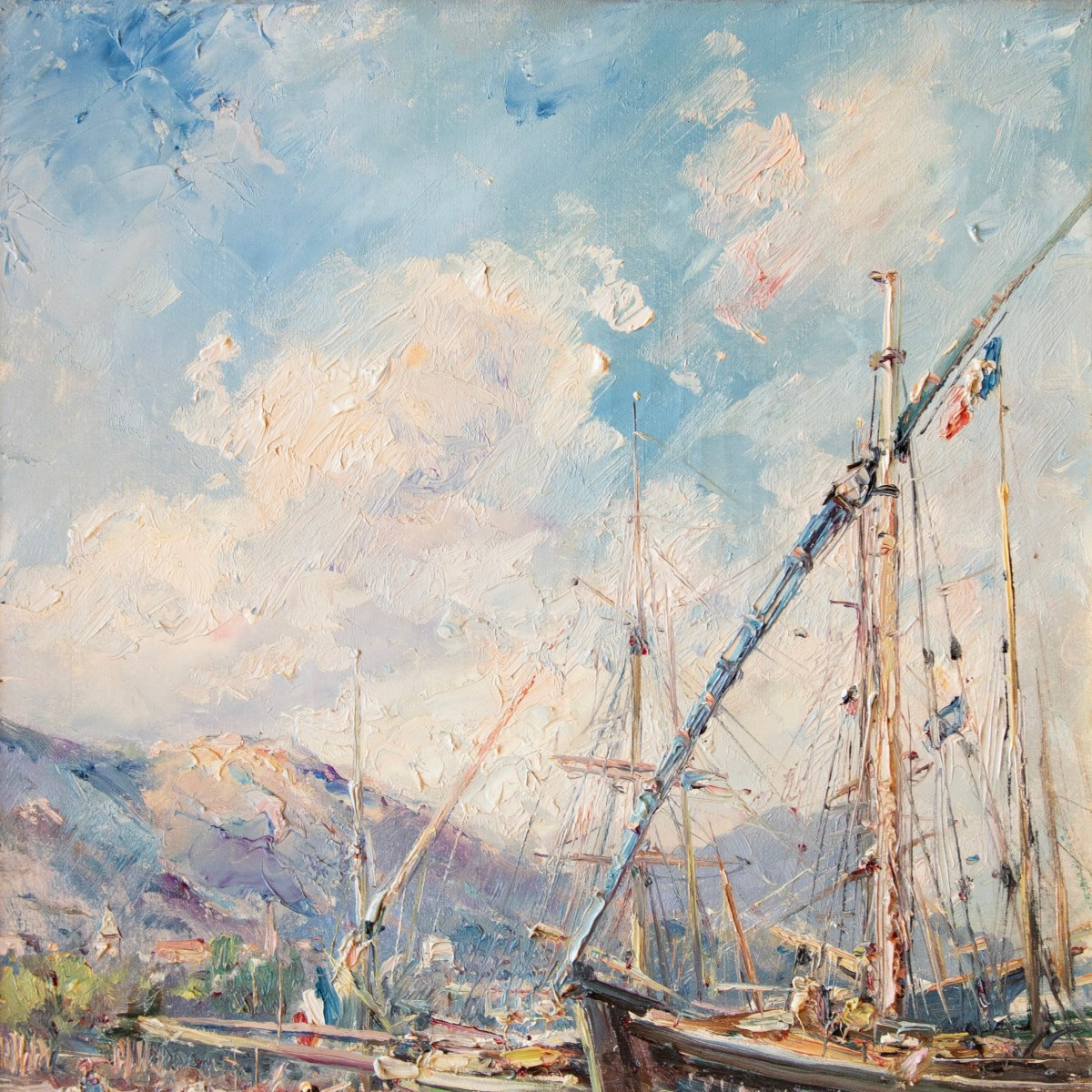








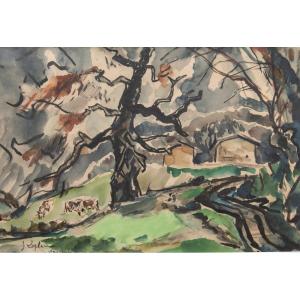








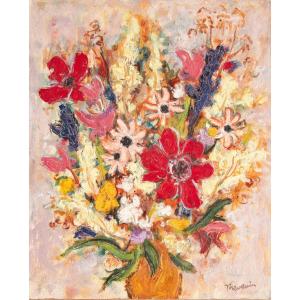
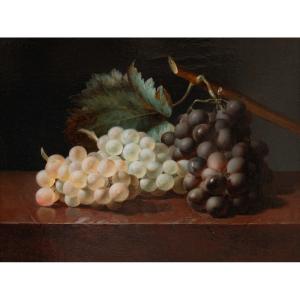

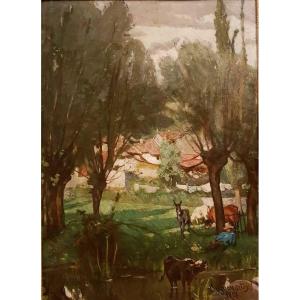





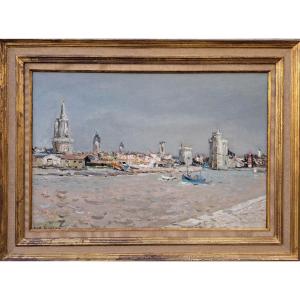



 Le Magazine de PROANTIC
Le Magazine de PROANTIC TRÉSORS Magazine
TRÉSORS Magazine Rivista Artiquariato
Rivista Artiquariato